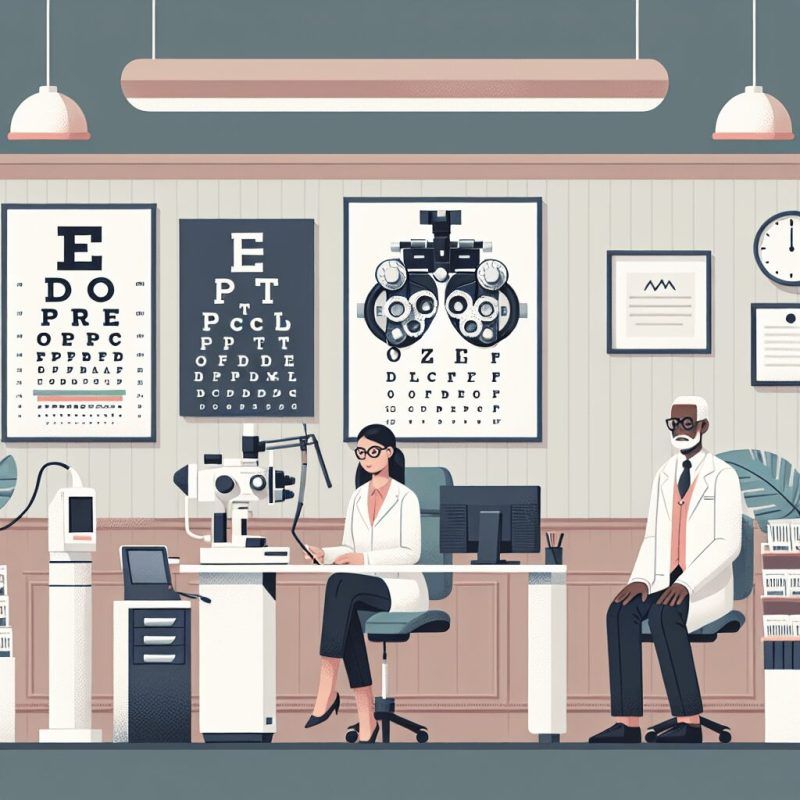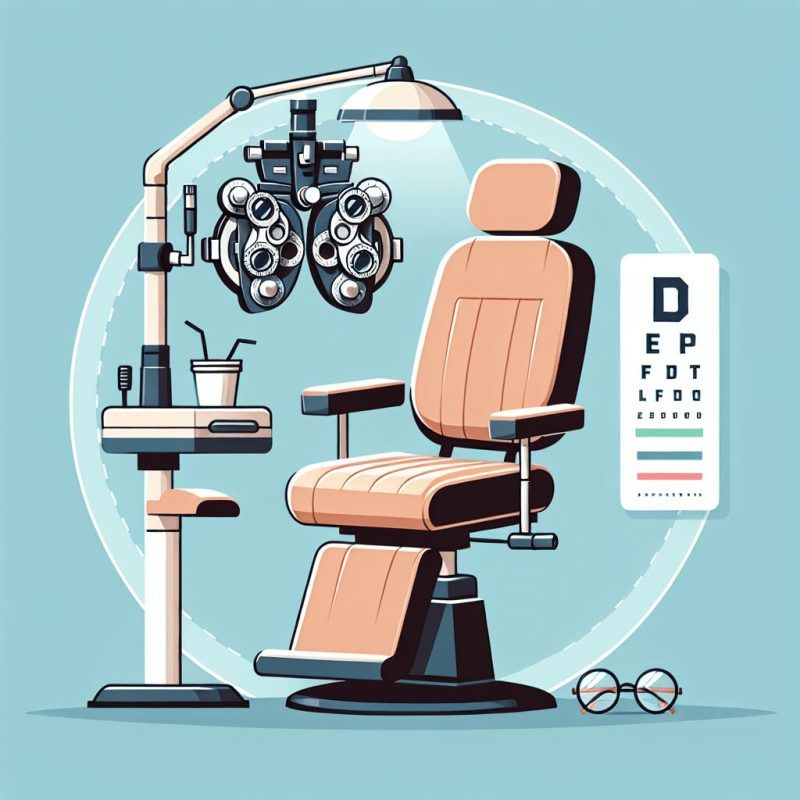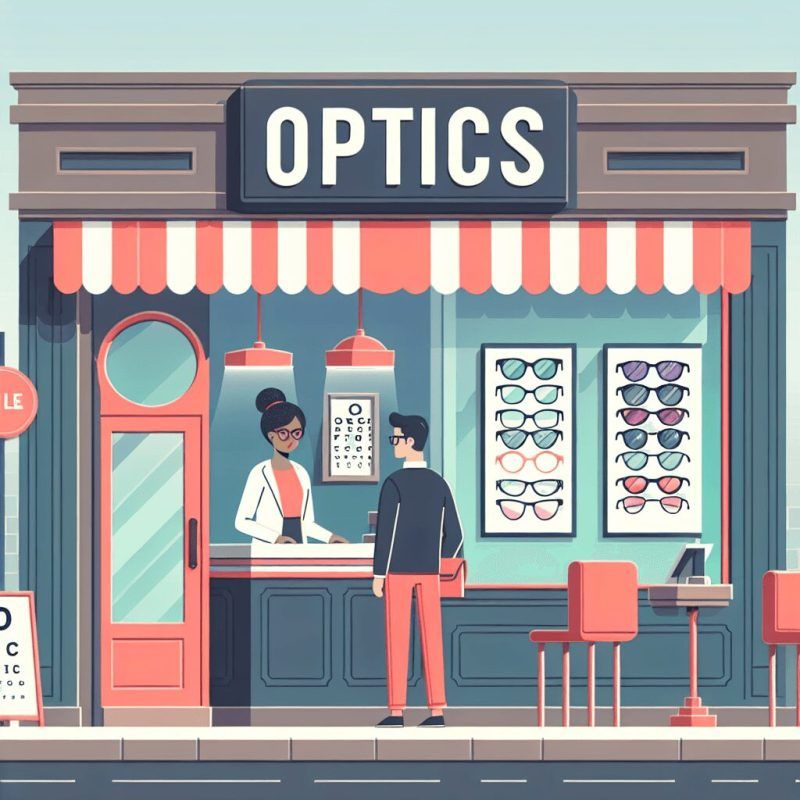Doctor's Corner
Discovering the Benefits of Eye Dilation
Have you ever wondered why your eye doctor dilates your eyes during a check-up? Dilation, which involves using special drops, may sound scary, but it’s actually pretty easy.
With dilated eyes, your eye doctor can check your eye health more thoroughly, helping to spot any possible eye issues.
Let’s talk about why eye dilation is important for keeping your eyes healthy.
Benefits of Eye Dilation
Enhancing Visibility for Diagnosis
Eye dilation is important for better visibility during eye exam s.
It allows the eye doctor to fully examine the optic nerve and retina.
This helps in preventing and treating eye conditions that could lead to vision loss.
Dilated eye exams can accurately diagnose diseases like glaucoma, diabetic retinopathy, cataracts, and more.
By widening the pupil with special drops, the doctor gets a detailed view of the eye’s health.
It is a crucial part of a comprehensive eye exam, aiding in accurate diagnosis and early management of various eye conditions.
Detecting Eye Conditions Early
Regular eye exams are important because they help detect eye conditions early. Many eye diseases have no symptoms at first.
Comprehensive eye exams are a way to catch potential issues like glaucoma, macular degeneration, and diabetic retinopathy. During these exams, eye dilation is needed. It helps the eye doctor see inside the eye better.
Dilation involves using eye drops to widen the pupil. This allows the doctor to check the optic nerve, retina, and other parts of the eye more thoroughly. It’s crucial for spotting conditions like cataracts, retinal tears, or detachments that need immediate care.
Make sure to schedule regular appointments with an optometrist for dilated eye exams. This is key to keeping your eyes healthy and preventing vision loss from untreated conditions.
Improving Glaucoma Diagnosis
Eye dilation is very important in diagnosing glaucoma. It allows the eye doctor to fully examine the optic nerve and retina, which helps in detecting early signs of this sight-threatening condition.
During an eye exam, the doctor administers eye drops to dilate the pupils. This helps accurately diagnose glaucoma and other optic nerve diseases.
Patients must understand the importance of regular comprehensive eye exams, including pupil dilation. This can help prevent vision loss from glaucoma.
Collaboration among optometrists and healthcare providers is essential in raising awareness about pupil dilation’s benefits. It helps detect systemic diseases like diabetes and hypertension that affect eye health.
Using advanced technologies like high-powered lights, slit lamps, and special lenses can enhance the accuracy and efficiency of glaucoma diagnosis during a dilated eye exam.
Assisting in Donating Eye Tissue
Eye tissue donation is important because it helps individuals who need transplants or assists researchers in advancing scientific knowledge.
By donating eye tissue, individuals can improve treatments for various eye conditions. The process involves donating corneas or other eye tissue after death, which can help restore vision for those in need.
Optometrist carefully examines donated eye tissue to ensure its quality and suitability for transplantation.
Importance of Dilated Eye Exams
Understanding How Long Eye Dilation Lasts
Eye dilation typically lasts 4-6 hours after an eye exam. The duration can vary based on how each person reacts to the medication.
During this time, individuals might have increased light sensitivity and blurry vision. This can make reading or using a computer more difficult. To manage this discomfort, wearing sunglasses can help with light sensitivity. It’s advisable to avoid tasks requiring close vision until the effects wear off.
If driving, consider having someone else drive due to potential vision issues.
Comparing Dilated vs Undilated Eye Exams
Having a dilated eye exam offers benefits over an undilated exam.
The dilation allows the eye doctor to thoroughly examine the optic nerve and retina. This is crucial for diagnosing and treating eye conditions that could lead to vision loss.
In a dilated exam, the doctor can see the entire retina, providing a comprehensive view.
This enables early detection of eye conditions such as glaucoma, diabetic retinopathy, age-related macular degeneration, cataracts, and ocular tumors.
Dilation drops help ensure accurate diagnosis and monitoring of these conditions.
To maintain optimal eye health, it is recommended that individuals over 60, those with a family history of glaucoma, or those diagnosed with diabetes have a dilated eye exam annually.
Determining Conditions Only Visible with Dilated Eyes
Dilating the eyes during an exam helps the eye doctor spot various eye conditions that may not be visible otherwise.
Conditions such as glaucoma, macular degeneration, retinal tears, detachments, ocular tumors, and cataracts can only be detected through a dilated eye exam.
This thorough approach aids the doctor in accurately diagnosing these eye diseases early.
By dilating the pupils, the eye doctor gets a complete view of the retina, optic nerve, and macula, which are vital in evaluating eye health.
Having regular dilated eye exams is important for maintaining good eye health and preventing vision loss from these serious conditions.
It is recommended to get a dilated eye exam every one to two years, especially for individuals over 60, those with a family history of glaucoma, and those with systemic diseases like diabetes or high blood pressure.
Experience of Eye Dilation
Sensation and Effects of Dilated Pupils
Dilated pupils can cause increased light sensitivity and blurry vision. This can affect activities like reading or driving. Once eyes are dilated, individuals should wear sunglasses to reduce discomfort from bright light.
Due to potential vision changes, it is advisable to have a companion for driving after a dilated eye exam. Dilated pupils enable eye doctors to accurately diagnose various eye conditions, such as glaucoma, macular degeneration, and retinal tears.
They allow for a thorough examination of the optic nerve and retina, which is crucial for preventing vision loss. These comprehensive eye exams also help obtain an accurate prescription for glasses and monitor systemic diseases like diabetes or high blood pressure.
Easing Discomfort Associated with Dilated Eyes
To ease the discomfort of dilated eyes, individuals can wear sunglasses that are less sensitive to light. Having a friend or family member drive after an eye exam can also help avoid any discomfort that affects daily tasks.
Using disposable sunglasses from the eye doctor or bringing a pair can reduce light sensitivity. It’s best to avoid driving due to possible vision issues caused by dilation.
After the exam, blurry vision or tightness in the eyelids can happen but will go away as the effects of dilation lessen. Even though there are no eye drops to reverse dilation, it’s important to be ready for post-exam effects to stay comfortable.
If the discomfort lasts a while, reaching out to the optometrist for advice is a good idea.
FAQ
What is eye dilation, and how is it done?
Eye dilation is a procedure in which drops are used to enlarge the pupils so that a better view of the inside of the eye can be obtained. It is done during an eye exam and may cause light sensitivity and blurry vision for a few hours.
Why is eye dilation important for eye exams?
Eye dilation is important for eye exams because it allows the optometrist to get a better view of the inside of the eye, including the optic nerve, blood vessels, and retina. This can help detect conditions such as glaucoma, macular degeneration, and diabetic retinopathy.
What are the benefits of eye dilation during an eye exam?
Eye dilation during an eye exam allows the eye doctor to better assess eye health by providing a larger view of the retina and optic nerve. It can help detect conditions such as glaucoma, macular degeneration, and diabetic retinopathy.
Are there any side effects or risks associated with eye dilation?
Possible side effects of eye dilation include temporary blurred vision, light sensitivity, and difficulty focusing on close objects. There is a risk of elevated eye pressure in individuals with narrow-angle glaucoma.
How long does the effect of eye dilation last?
The effects of eye dilation typically last 4-6 hours, but this can vary depending on the individual and the type of eye drops used. Until the dilation wears off, it is recommended that you avoid driving or performing tasks that require sharp vision. done
The post Discovering the Benefits of Eye Dilation first appeared on Optometrist in Woodlands & Willowbrook TX.
Doctor's Corner





